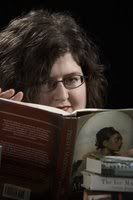
West of Mars (my friend Susan) and her friend Erica are hosting a fantastic contest aptly named "Debut a Debut." You can find all the details here however the basic details are this:
How to Enter
1. Buy, find, or borrow a novel that is an author's debut.
2. Read the novel.
3. Write a review. It does not have to be a professional review. Provide a brief plot synopsis and then mention your likes or dislikes or other thoughts you had while reading.
4. Post the review online - either on a website or blog (reviews at BookCrossing or Gather would certainly count) between February 12th and 17th.
5. Send the permalink of the post to West of Mars or Writing Aspirations in an email message or post a comment to the main contest post with a link to your review.
I was amazed when I reviewed the list to see how many debut novels I've read in the past year. Here's a list with links to my reviews:
Albyn Leah Hall -- The Rhythm of the Road
Diane Setterfield -- The Thirteenth Tale: A Novel
Jed Rubenfeld -- The Interpretation of Murder
Julie K.L. Dam -- Some Like it Haute
Keith Donohue -- The Stolen Child
Melissa Clark -- Swimming Upstream Slowly
Paul Cavanagh -- After Helen
Sam Savage -- Firmin
Tom McCarthy -- Remainder
I haven't decided yet what I'm going to read for this contest; however, a number of the titles are in my to be reviewed pile so I'll have to go hunting.
Here's my question for readers - are you going to participate and what are you planning to read?



















